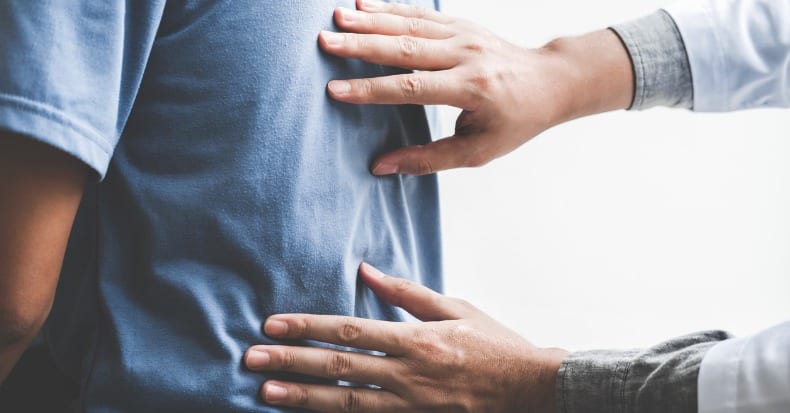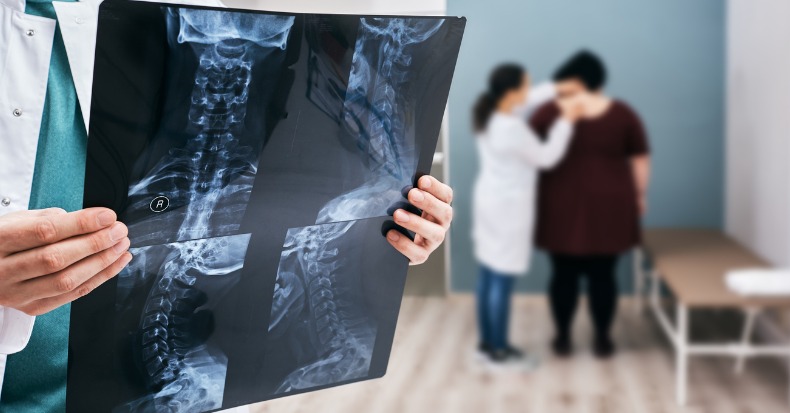Newest Articles
Whiplash injuries occur as the result of a sudden acceleration followed by deceleration, and the degree of injury is dependent on many factors. Some of these include: the size of the vehicle, the conditions of the road, the angle of the seat back, the “springiness” of the seat back, the position of the head rest, [..]
Fibromyalgia
(FM) and sleep dysfunction seem to go hand in hand. In fact, most
people who have FM complain of problems associated with sleeping. Sleep
problems can include difficulty falling asleep with or without waking up
one to multiple times a night. Also, the inability to reach “deep
sleep” results in waking up feeling un-restored. [..]
Last month, we discussed the relationship between sleep deprivation and low back pain (LBP) and found that LBP can cause sleep loss AND sleep loss can cause LBP. It’s a two-way street! This month, we will look at ways to improve your sleep quality, which in return, will reduce your LBP. There are many ways [..]
Last month, we began discussing common myths about whiplash injuries and this month we will continue on that course. Remember, the amount of injury that occurs in an acceleration/deceleration injury is dependent on many factors, some of which include gender (females>males), body type (tall slender = worse), the amount of vehicular damage (less is sometimes [..]
Fibromyalgia
(FM) is a disorder that affects each sufferer a little differently.
Therefore, promoting a one diet approach for every FM patient doesn’t
make a lot of sense. However, according to Dr. Ginevra Liptan, the
medical director of the Frida Center for FM in Portland, Oregon, it is
clear that what is included in a [..]
Carpal Tunnel Syndrome
(CTS) is a condition characterized by pain, numbness, and/or tingling
in the hand. This includes the palm and the 2nd, 3rd, and half of the
4th finger, usually sparing the thumb. Another indication of CTS is
weakness in grip strength such as difficulty opening a jar or even
holding a coffee cup. [..]
Headaches are one of the most common reasons people seek chiropractic care. Many patients with headaches benefit significantly from adjustments made to the upper cervical region. So, the question is, how does adjusting the neck help headaches? To help answer this question, let’s look at a 2011 study that examined this exact issue…
It’s been [..]
Upright posture is a first class lever mechanical system, such as a teeter-totter or seesaw (1, 2). The fulcrum of a first class lever is the place where the force is the greatest: if excessively heavy objects are placed on both ends of the teeter-totter, it will break in the middle, at the fulcrum. In the [..]
Traditionally, chiropractic care is most commonly rendered for a finite amount of time, usually until the symptoms that initially drove the patient to seek out care resolve. However, some patients find that periodic chiropractic treatments make them feel better and improve their sense of well-being.
Three basic methods of chiropractic care exist: 1) acute care, [..]
Neck Pain can arise from many different sources with a similar clinical presentation, which can make it a challenge to diagnose. One of those related, and sometimes co-existing conditions, is called thoracic outlet syndrome (TOS). Let’s first discuss the anatomy of the neck and the thoracic outlet so we all have a good “picture” in [..]
Whiplash is most commonly associated with the rapid, uncontrolled movement of the head as it whips back and forth during a motor vehicle collision. Though different types of injuries are associated with rear vs. front vs. side collisions, the net result is similar: the neck hurts! This month, we will look at several “myths” or [..]
Fibromyalgia
(FM) is a disorder that includes widespread musculoskeletal pain along
with fatigue, sleep disturbance, memory changes, mood changes, and more.
Studies show that FM amplifies or increases painful sensations by
changing the way the brain processes pain signals. FM is NOT a
psychological disorder that only people with a troubled past or present
acquire. [..]















